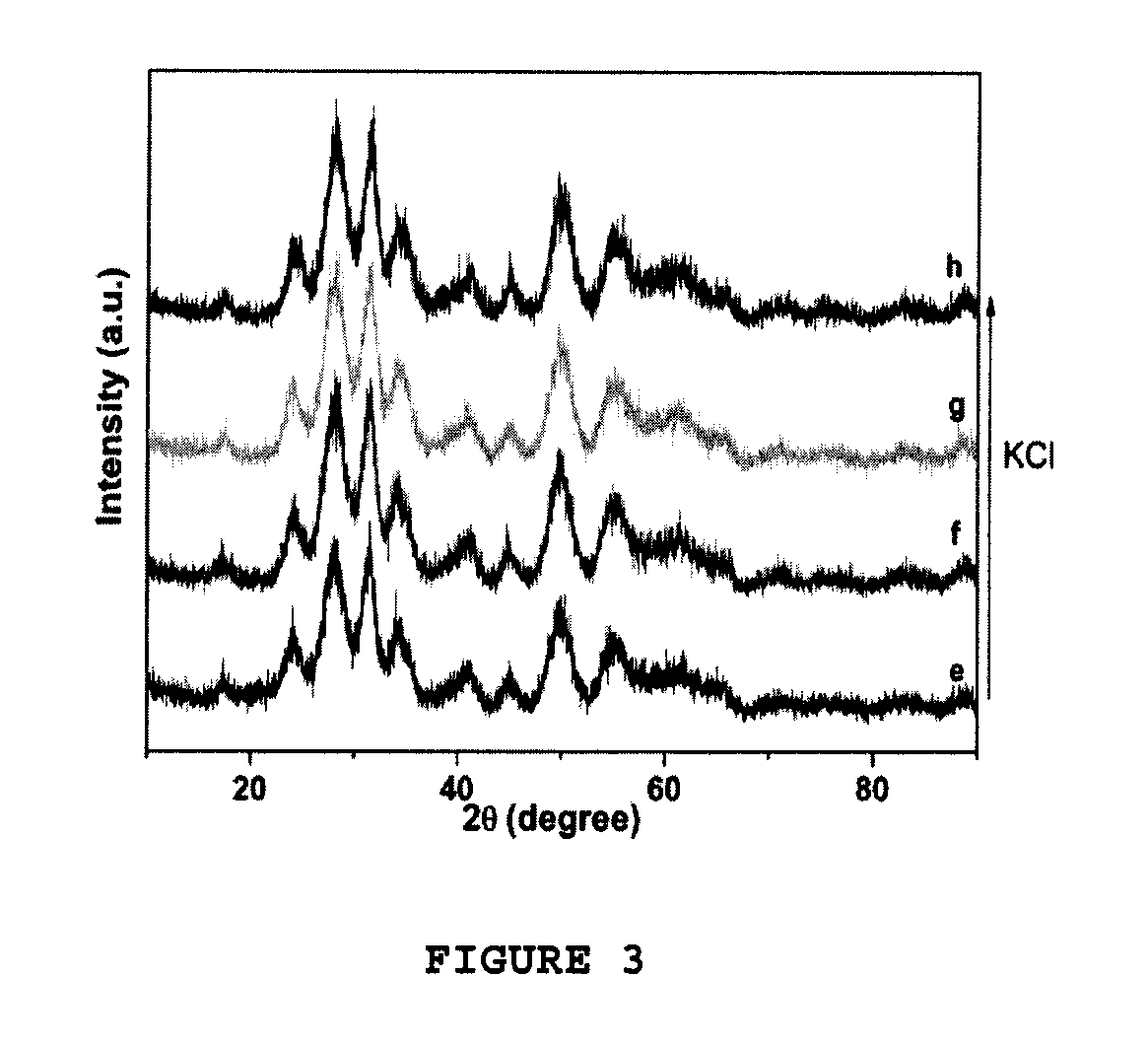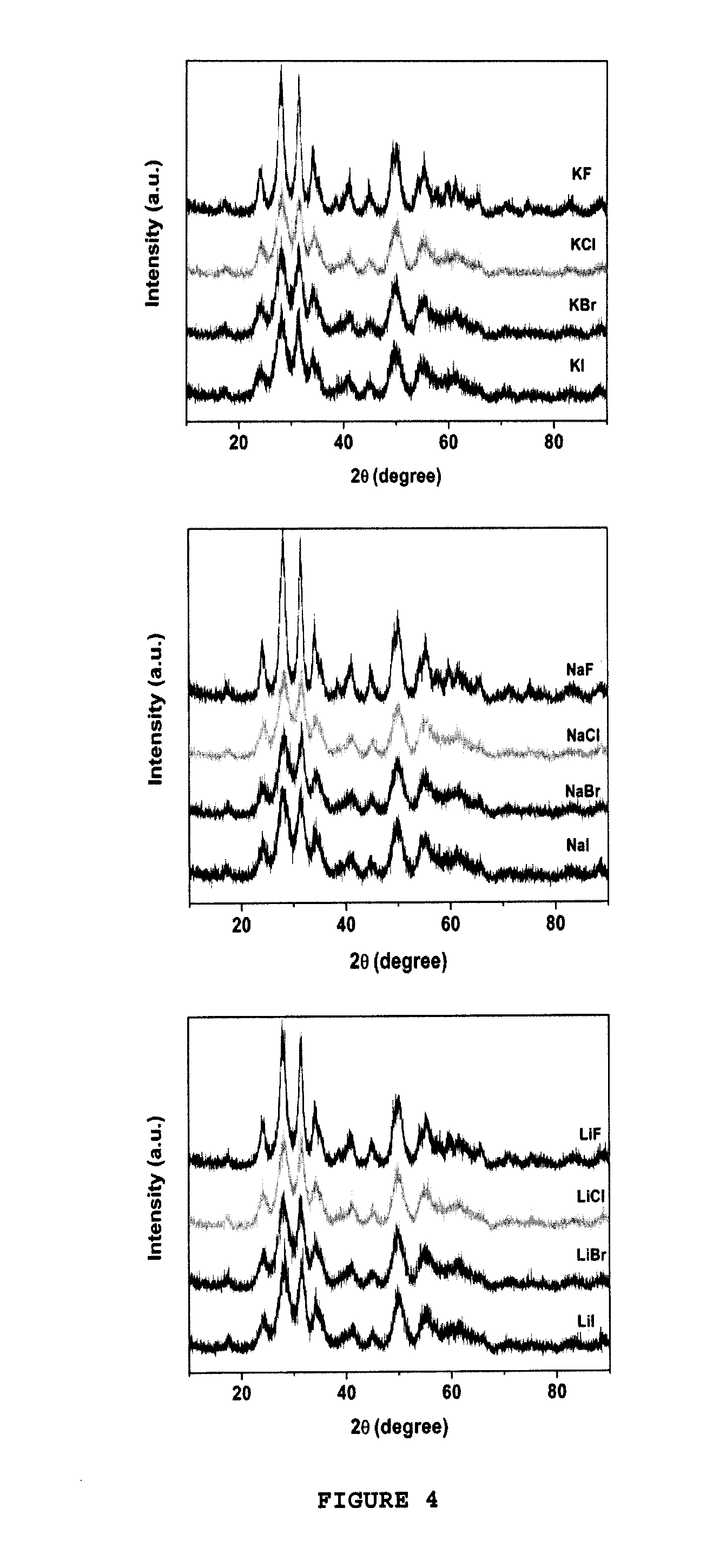Method for Producing Zirconia Colloids
a zirconia and colloidal suspension technology, applied in the direction of zirconium oxides, colloidal chemistry, other chemical processes, etc., to achieve the effect of improving the economics of the process and increasing the yield of the process
- Summary
- Abstract
- Description
- Claims
- Application Information
AI Technical Summary
Benefits of technology
Problems solved by technology
Method used
Image
Examples
example 1
Preparation of an Acidic Water-Based Zirconia Colloid
[0041]9.9 g of KCl and 170.85 g of ZrOCl2.8H2O were dissolved in 289.5 g of deionized water under magnetic stirring.
[0042]375 ml of the mixture thus obtained were filled into a 500 ml Teflon® lined autoclave. The autoclave was placed in an oven and heated to a temperature of 180° C. during 72 h.
[0043]2 l of deionized water were added under stirring to the two-phase mixture thus obtained. The diluted suspension was then desalted by ultrafiltration until a pH of 3.6 was reached. The dry content was adjusted between 16% and 16.5% and resulted in 380 ml of colloidal suspension. The yield of conversion of the zirconium precursor into zirconia particles was close to 90%.
example 2
Preparation of Acidic Methanol-Based Colloidal Zirconia
[0044]One part of the suspension obtained in Example 1 was solvent exchanged by diafiltration. To achieve this, the colloidal suspension was concentrated by using an ultrafiltration apparatus while absolute methanol was continuously added to the suspension. The process was stopped when the water content in the suspension was lower than 0.1% by weight and the suspension was then concentrated until reaching a dry content of 21.5% by weight. The yield of conversion of the zirconium precursor into zirconia particles was close to 90%. A colloidal zirconia suspension in methanol was thus obtained.
example 3
Preparation of Alkaline Water-Based Colloidal Zirconia
[0045]One part of the zirconia suspension obtained in example 1 was further modified to increase its pH. To achieve this, 54.5 g of deionised water were added to 21.1 g of zirconia suspension obtained from example 1. On another side, 0.35 g of trisodium citrate was dissolved in 30 ml of deionised water. The trisodium citrate solution was then added to the zirconia suspension at a rate of 2.5 ml / min under continuous stirring. After the addition was completed, the suspension was stirred continuously for 12 h. The obtained suspension was then acidified to pH=8.5 and concentrated to 20% dry weight content by ultrafiltration. Stable and transparent alkaline water-based zirconia suspension was thus obtained, with a zeta potential of −62 mV.
PUM
 Login to View More
Login to View More Abstract
Description
Claims
Application Information
 Login to View More
Login to View More - R&D
- Intellectual Property
- Life Sciences
- Materials
- Tech Scout
- Unparalleled Data Quality
- Higher Quality Content
- 60% Fewer Hallucinations
Browse by: Latest US Patents, China's latest patents, Technical Efficacy Thesaurus, Application Domain, Technology Topic, Popular Technical Reports.
© 2025 PatSnap. All rights reserved.Legal|Privacy policy|Modern Slavery Act Transparency Statement|Sitemap|About US| Contact US: help@patsnap.com



